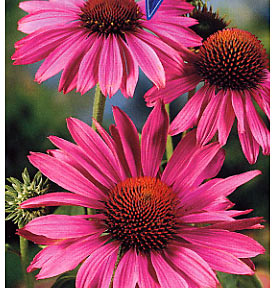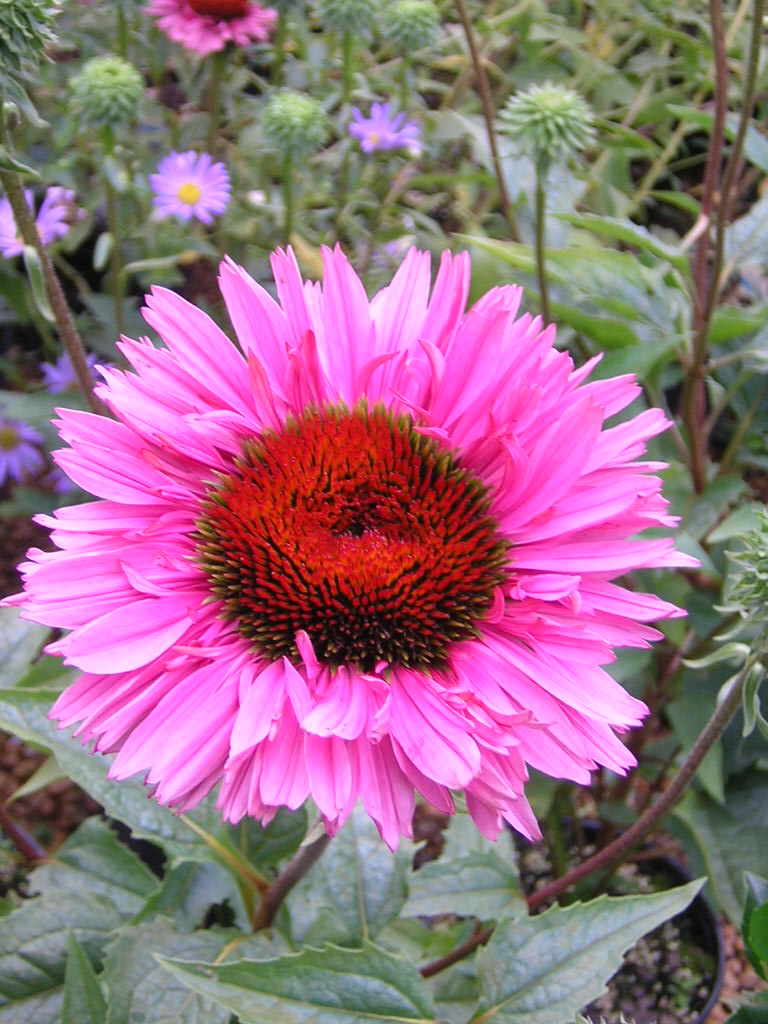Naturopathic health
Echinacea Purpurea Herbal Remedy
Echinacea Angustifolia & Purpurea immune boosting health benefits
Echinacea is one of the most commonly used herbal remedies. It has been found to possess antibacterial and immune-boosting properties, helping to fight coughs, colds, viral infections, as well as upper respiratory tract and vaginal infections. It also helps speed recovery time after an infection, with none of the side effects caused by antibiotics. Both varieties of echinacea (angustifolia and purpurea) have similare health benefits although some herbalists prefer angustifolia or a combination of both. Echinacea is used to prevent and treat:The common cold and flu Respiratory problems (eg laryngitis, tonsillitis) Asthma (that worsens in cold weather) Microbial infections (eg Boils and Septicemia) Candida As a boost to the immune system As a mouthwash to treat pyorrhea and gingivitis As a lotion it helps septic sores and cuts Side effects and contraindicationsEchinacea usually does not cause side effects and in general it can be used widely and safely. However, some people experience allergic reactions, including rashes, increased asthma, and anaphylaxis. In clinical trials, gastrointestinal side effects were most common. People are more likely to experience allergic reactions to echinacea if they are allergic to related plants in the daisy family, which includes ragweed, chrysanthemums, marigolds, and daisies. Also, people with asthma or atopy (a genetic tendency toward allergic reactions) may be more likely to have an allergic reaction when taking echinacea. Adult tincture dosageUsing a 1:3 strength tincture take 1ml to 5ml three times a day Naturopaths treat the whole person not just the disease or condition. That's why you cannot use this site for diagnosis or treatment. The information we provide should not be treated as a substitute for medical advice or treatment. We recommend that you visit a qualified naturopath or find a GP who is sympathetic to a naturopathic approach. Click here for our full disclaimer. |
Research homeHerbal remediesEchinacea researchBuying herbal remedies FAQs
|
|
|
|
||
|
|
|
If you're starting to move towards a healthy diet and you want to take a major step forward then a detoxification programme can make a big difference. Click on the link below to find out more. Healthy Recipes Juicing SupplementsBach Flower Herbal Acupuncture Homeopathy DetoxificationMassage Qi Gong Nutrition & Diet Iridology Tissue Salts |

[Herbal Remedies][Ailments][Naturopathy][Contact][Community][Lifestyle][Home][Research]








